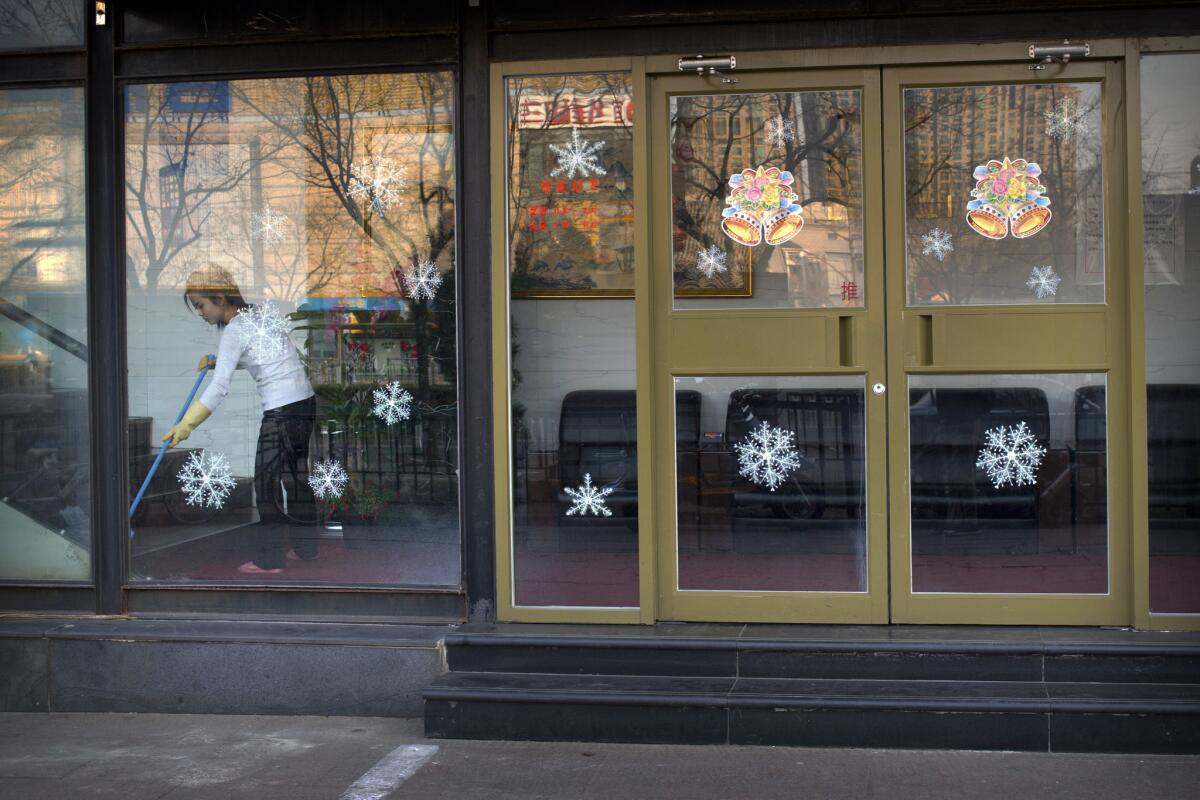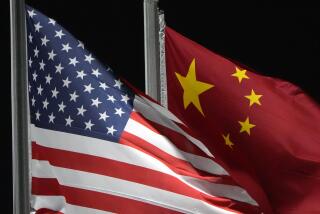China orders North Korean businesses closed under United Nations sanctions

Reporting from BEIJING — China on Thursday ordered North Korean-owned businesses to close, cutting foreign revenue for the isolated North under U.N. sanctions imposed over its nuclear and missile programs.
China is North Korea’s main trading partner, making Beijing’s cooperation essential to the success of sanctions aimed at stopping the North’s pursuit of weapons technology. China, long North Korea’s diplomatic protector, has gone along with the latest penalties out of growing frustration with leader Kim Jong Un’s government.
North Korean businesses and ventures with Chinese partners must close within 120 days of the U.N. Security Council’s Sept. 11 approval of the latest sanctions, according to the Ministry of Commerce. That would be early January.
North Korean companies operate restaurants and other ventures in China, helping to provide the North with foreign currency. North Korean laborers work in Chinese factories and other businesses.
Also Thursday, China’s foreign ministry appealed for dialogue to defuse the increasingly acrimonious dispute between President Trump and North Korea.
“The Korean Peninsula nuclear issue is related to regional peace and stability,” ministry spokesman Lu Kang said. “Breaking the deadlock requires all relevant parties to show their sincerity.”
China, one of five permanent Security Council members with veto power, supports the latest sanctions but doesn’t want to push North Korea too hard for fear Kim’s government might collapse.
Chinese leaders argue against doing anything that might hurt ordinary North Koreans. They agreed to the latest sanctions after the United States toned down a proposal for a total ban on oil exports to the North.
Chinese officials complain their country bears the cost of enforcing sanctions, which have hurt businesses in its northeast that trade with the North.
The latest round of U.N. sanctions bans member countries from operating joint ventures with North Korea, most of which are in China.
They also ban sales of natural gas to North Korea and purchases of the North’s textile exports, another key revenue source. They order other nations to limit fuel supplies to the North.
China, which provides the bulk of North Korea’s energy supplies, announced Saturday it would cut off gas and limit shipments of refined petroleum products, effective Jan. 1. It made no mention of crude oil, which makes up the bulk of Chinese energy supplies to North Korea and is not covered by the U.N. sanctions.
China also has banned imports of North Korean coal, iron and lead ore, and seafood since early September.
On Thursday, the Ministry of Commerce defended its recent imports of North Korean coal, saying they were permitted by U.N. sanctions.
A ministry spokesman, Gao Feng, said imports that were reported in August trade data were allowed by a “grace period” for goods that arrived before the U.N. ban took effect.
The imports are “in line with the [U.N.] resolution,” Gao said.
ALSO
Escalating tension has experts simulating a new Korean War, and the scenarios are sobering
What’s wrong with the Iranian army? Deadly shootings put spotlight on forced military service
Islamic State’s deadly drone operation is faltering, but U.S. commanders see broader danger ahead
More to Read
Sign up for Essential California
The most important California stories and recommendations in your inbox every morning.
You may occasionally receive promotional content from the Los Angeles Times.










